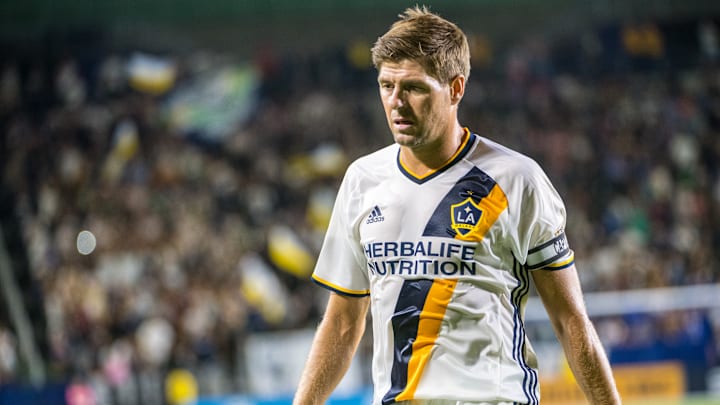When Steven Gerrard touched down in Los Angeles in 2015, everyone thought he’d take the U.S. by storm, just like he did in the Premier League. But the story played out differently. The Liverpool icon found himself in a whole new world—long flights, changing altitudes, scorching heat, and even sudden storms. It was a complete shock to the system. I mean, it’s not every day a European soccer star has to deal with playing at 6,000 feet one day, and then, bam, in the blazing heat somewhere in Texas the next.
Gerrard joined LA Galaxy with the status of a true superstar, practically a mythical figure after 17 years with Liverpool. In Anfield, he was worshipped. But in the U.S., the game’s different—literally and figuratively. Sure, MLS is real soccer, but it’s not the soccer Gerrard knew. He swapped those rainy, electric nights at Liverpool for sometimes artificial turf and half-empty stands in California. The vibe just wasn’t the same. And he felt that right away.
Follow MLS Multiplex on X (Twitter).
His $9 million contract for 18 months showed just how much faith the Galaxy had in him. They didn’t just want a player; they wanted the face of their franchise. And, yeah, Gerrard did deliver a little: in his MLS debut, he scored and assisted, showing flashes of that talent Liverpool fans knew all too well.
Reality in MLS turned out to be way tougher than Gerrard ever imagined. Here’s something not many people talk about: the league’s schedule is brutal, with long travel and games at wildly different altitudes. And Gerrard didn’t hide how much it wore him down. For anyone who watched him dominate midfields across Europe, it’s hard to imagine just how tough it was for him to adjust to these so-called “minor” details. In the end, it was these “invisible” factors that weighed much more heavily than he ever thought they would.
It’s no secret that MLS doesn’t have the same technical quality as Europe’s top leagues. For some players, that’s an advantage. But for a fierce competitor like Gerrard, it had to be frustrating.
It didn’t take long for that frustration to surface. After Galaxy got knocked out of the 2015 playoffs, Gerrard admitted he was already thinking about retiring. And the main reason? The never-ending travel. That “American dream” started feeling more like a burden, and not in a good way. Sure, he didn’t jump ship right away, but it was clear that the Gerrard-Galaxy marriage wasn’t the fairy tale fans, and maybe even he, had hoped for.
He stuck it out for another season, but the writing was on the wall. That spark in his eyes, so clear during his Liverpool days, was gone. And who could blame him? At 36, with an incredible career under his belt, he had nothing left to prove.
The final chapter of his Galaxy stint came on November 6, 2016, in a heartbreaking penalty shootout loss to the Colorado Rapids. Even though Gerrard made his shot, his teammates couldn’t, and the Galaxy got eliminated. It was a bittersweet ending for a player who was used to epic finals.
Days later, Gerrard confirmed what everyone was already thinking: he was out. His contract was ending, and he wasn’t sticking around. For a guy who spent nearly two decades playing at the highest level, the American adventure had been exhausting. On November 24, 2016, at age 36, he officially announced his retirement from the game. And just like that, the final page of one of soccer’s most legendary careers was written—not under the bright lights of Anfield, but in an American stadium, in front of a lukewarm crowd, with a bittersweet ending.
So, what do we take away from this experience? Did Gerrard fail at Galaxy? If we’re looking just at the numbers, he didn’t impress. There were few goals, and his overall impact on the team was limited. But the truth is, Gerrard never needed MLS to define his legacy. He’d already done that at Anfield, where he carried Liverpool on his back countless times, like that famous Champions League final in 2005.
What Gerrard’s time at LA Galaxy showed is that even the biggest soccer stars sometimes need more than talent to shine in a new setting. And maybe MLS wasn’t the perfect stage for Gerrard, but he gave it a shot anyway.
